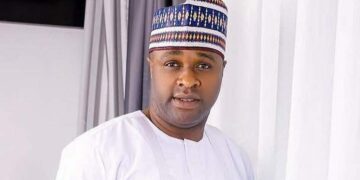
British Prime Minister Keir Starmer said Thursday that the UK will begin discussions with other countries to create “return hubs”—locations where failed asylum seekers can be sent after going through the UK’s legal system.
Speaking to GB News from Albania during an official visit, Starmer explained:
“We want to set up return hubs—where someone has been through the system in the UK, they need to be returned… and we’ll do that, if we can, through return hubs.”
Pressure Mounts Over Migration
The announcement comes as Starmer faces growing pressure to reduce the number of irregular migrants, many of whom arrive on UK shores in small boats.
Much of that pressure stems from the rising popularity of the hard-right Reform UK party, led by anti-immigration figure Nigel Farage. Reform UK recently gained ground in local elections, increasing scrutiny on the Labour government’s immigration policy.
Labour Scraps Rwanda Plan, Unveils Tougher Rules
Under Starmer’s leadership, Labour abandoned the controversial plan to deport undocumented migrants to Rwanda—a policy pushed by the previous Conservative government.
However, Starmer has since introduced stricter immigration controls, including:
-
Cutting the number of overseas care workers
-
Doubling the wait time before migrants can apply for settlement
-
New powers to deport foreign criminals
These moves were widely seen as efforts to counter Reform UK’s influence and reassure voters that Labour is serious about border control.
UK Sees Surge in Migration Numbers
Last year, Labour pledged in its general election manifesto to significantly reduce net migration.
-
Net migration hit 728,000 in the 12 months up to June 2023.
-
It peaked at 906,000 in 2022, far above the average of 200,000 seen through most of the 2010s.
Alongside legal migration, the UK is also dealing with record numbers of irregular entries.
So far this year, over 12,500 migrants have made the dangerous Channel crossing, according to UK Home Office figures compiled by AFP.
Talks in Albania Focus on Migration
Starmer’s visit to Albania—a key source country for many migrants—has migration high on the agenda. The two-day trip is expected to focus on improving cooperation on returns and border control.



















